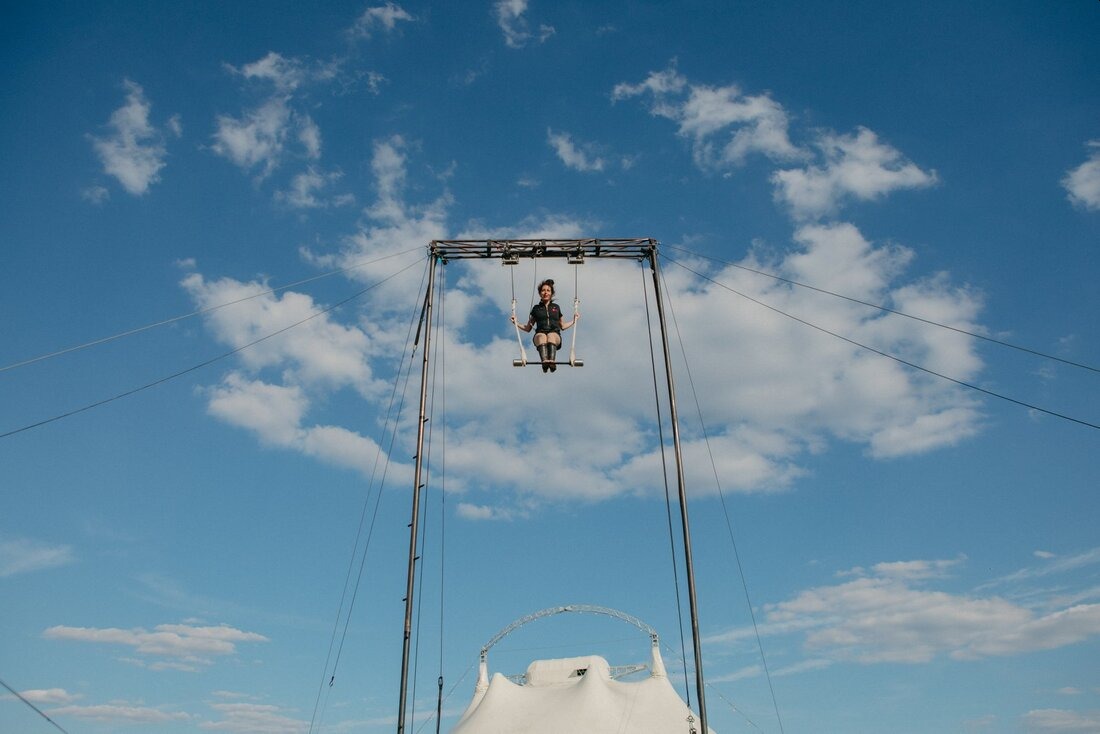
Berlin Circus Festival: Pushing the Boundaries of Contemporary Circus
The 11th Berlin Circus Festival will take place from July 30 to August 10, 2025, featuring 19 productions and 51 performances that explore contemporary circus through diverse artistic forms. Alongside its expanded international program, the festival emphasizes social inclusion and professional exchange.
From July 30 to August 10, the Berlin Circus Festival (BCF) returns for its 11th edition. In both the German and international contemporary circus scenes, BCF is now established as one of the largest festivals of its kind. This year, it will present 19 productions and 51 performances over 12 days, reaffirming its position in Europe’s cultural calendar.
Within nearly two weeks, audiences will have the opportunity to experience a range of artistic works, from physical solo performances to technologically experimental ensemble productions. Performances will take place across several tents and open-air settings on iconic Tempelhofer Feld, with a program that brings together emerging voices and established names from across Europe.
This year, BCF is also expanding its offerings for professionals in the performing arts industry. The festival will host a range of events from August 1 to 4 to initiate artistic dialogue and foster global collaboration. Some of the events include an artist panel, an international roundtable, a pitching session for touring and in-development shows, and an Open Stage for FLINTA performers.
From an informal gathering to an established cultural event
Launched in 2015 against the backdrop of Berlin’s independent arts scene, BCF began as a grassroots initiative with a clear ambition: to introduce contemporary circus to new audiences and carve out space for the art form within Germany’s broader performing arts landscape. As Josa Kölbel, co-founder and artistic director of BCF, says, “When we started, the contemporary circus, where a rigid framework does not bind expression and aesthetics, but is free, was still a niche discipline in Germany. We wanted to create a space for artistic experimentation that could meet broader public interest, and the festival has grown organically around that idea.”
Over the years, the festival has partnered with initiatives such as CircusNext and various EU projects, and is a member of the Federal Association for Contemporary Circus in Germany. What sets the BCF apart is its continuous relationship with performers. The festival collaborates with emerging artists, supporting them through residencies, work-in-progress showings, pitching formats, and following them from concept to the final show.
“The ongoing support throughout the years, inviting artists often back with their new creations, is one of our core values, and this relationship is something that the artists value highly. For audiences alike, the impression changes when encountering the known faces of artists after becoming fans of their previous productions,” Kölbel says. "Many festival attendees are returning visitors. While some might have initially expected a more traditional circus, they now understand and appreciate contemporary circus. From starting as an unknown festival to the Berlin audience, now people are looking forward to it and coming back every year."
Artistic innovation and social inclusion
What defines BCF’s artistic direction is not a singular aesthetic but an ethos of curiosity and risk-taking. “Contemporary circus is an art form that manages to transport its inherent meaning to the audience: the joy of life, risk-taking, and a daring, courageous living that embraces action full of hope, belief, and optimism,” Kölbel explains. “We do not program around a fixed theme, but we look for works that push the language of circus forward: be it through narrative, form, or who gets to tell the story.”
Apart from artistic innovation, BCF has distinguished itself by embracing a robust social engagement model. Through its TADAs initiative, the festival collaborates with community organizations to bring circus activities to individuals who might otherwise lack access to them, including people with disabilities, refugees, and those living in poverty, among others. These involve performances at care homes, internships for individuals with disabilities, and organized visits to the festival site.
Yet another key aspect of this strategy is the Social Ticket program, under which festivalgoers can pay a little more for their ticket to subsidize free access for others. “Inclusion for us is about who gets invited to the party: on stage, backstage, and in the audience. Our diversity-focused programming, social ticketing system, and community work are all part of the same conversation. We aim to contribute to a larger movement toward greater diversity, inclusion, and a stronger sense of community,” says Kölbel.
Looking ahead, BCF aims to deepen its support for the professional circus ecosystem. As it moves into its second decade, the festival is expanding opportunities for exchange, artistic visibility, and collaboration, experimenting with new formats and technologies, while holding fast to its original mission: to make contemporary circus meaningful and resonant with the realities of today’s Europe.